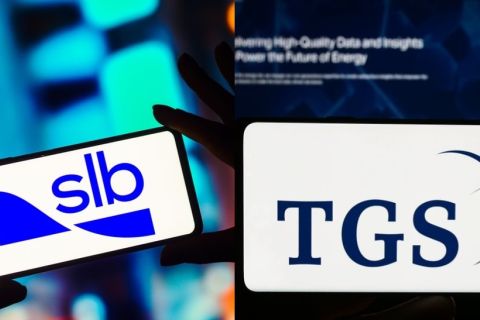John Arnold, Houston-based founder of hedge fund Centaurus Advisors and now a full-time philanthropist, posted on X that he found an “arc of ESG as told through oil and gas quarterly investor presentations.”
Arnold was on the other side of Amaranth Advisors’ losing bet on energy futures in 2006.
Before 2020, E&P slides had no ESG mentions, he said. Between then and 2022, he found “dedicated slide[s] among the first 10 pages of deck[s].” This past year, though, ESG was “mentioned in the back half of presentation[s].”
Still stuck in 2022: Capitol Hill. Should ESG—the “E” part—give a hall pass to statements that mob neurological circuitry, jarring the brain with acutely uninformed statements for social media Likes? There are so many of these from members of Congress.
Sen. Amy Klobuchar (D-Minnesota) posted on X that the Exxon Mobil combination with Pioneer Natural Resources “could significantly reduce competition and drive up gas prices at the pump.”
X’er “Ken M” replied, “Lol. So as the world goes green, oil corporations are not allowed to increase their investments?”
Klobuchar knows that the U.S. is exporting its light-gravity oil because the U.S. doesn’t have enough refining capacity for it. And dealing with federal regulatory hurdles doesn’t make adding more capacity worth it.
Exxon Mobil controlling some 1 MMbbl/d of Permian Basin oil production doesn’t matter to U.S. pump prices.
Sen. Chuck Schumer (D-New York) also X’ed that the deal will increase pump prices. Among the X’ers against the deal, one began a reply with “I am in California and ….” (Meme-makers, go for it.)
But user “Bill Hershey” posted, “Maybe you should tell your boss [President Biden] to stop forcing small energy companies out of business.”
And an X’er with a name that’s NSFW (in any century) posted, “We are being forced to pay more at [the] pump now due to your green agenda. I’m confused. Shouldn’t you be investigated?”
In the business world, i.e., the real world, the over-the-top arc that ESG has reached over time is running out of gas, at least in the U.S.
Reports in early January were that BlackRock was cutting 3% of its roster, totaling some 600 employees, and that most of these will be from its ESG portal.
Exxon Mobil has outperformed BlackRock since year-end 2021, with XOM shares gaining 63% and BLK losing 13%, as of the Jan. 9 close. BLK dividends totaled $39.52/share in those eight quarters or a 4.3% cash return on the $915 share price at year-end 2021 close.
XOM has paid $4.59 or an 8% cash return on a $61 year-end 2021 closing price.
Arjun Murti, a partner at investment firm Veriten, wrote in his “Super-Spiked” newsletter in early January that profitability and a strong balance sheet are “no longer differentiating for traditional energy names.”
Instead, they’re just table stakes. And “the various climate and ESG goals are now table stakes [too] and not differentiating for the most part.”
He added that ESG “has been overrun by ‘climate only’ ideologues and related progressive—U.S. political context—causes, which are now facing reflexive backlash from the U.S. right.”
Veriten’s view is that meaningful ESG is key to a company’s success now. “The left-wing—i.e., progressive—political orientation of ESG is what needs to go away,” Murti wrote.
At the same time, “the right-wing counter that ‘all ESG is a grift’ in our view fails to differentiate between relevant concepts—e.g., governance is indisputably a critical focus area for all investors—and the problematic portions of current-day ESG.”
Rohan Patel, who was a climate and energy adviser to President Obama, posted in January, “I’m a bit baffled that there is still a push amongst climate advocates to continue this ESG investment push.”
Besides that rating a company’s ESG is “irreparably broken,” there is a fundamental problem: “The nature of the term ‘ESG’ is also completely nonsensical as it groups three already broad and somewhat disconnected categories into one set of useless ratings.”
Enverus analyst and “Energy Transition Today” editor Carson Kearl studied the newsletter’s 2023 poll participation in summary of the year’s hot and not-hot topics. Readers engaged the most in a poll on electric vehicles, he reported. Hydrogen and macro topics were also popular and there was interest in power, lithium extraction and carbon capture, utilization and sequestration.
ESG ranked last, though, he reported. “ESG isn’t receiving a ton of love ….”
Recommended Reading
TGS, SLB to Conduct Engagement Phase 5 in GoM
2024-02-05 - TGS and SLB’s seventh program within the joint venture involves the acquisition of 157 Outer Continental Shelf blocks.
2023-2025 Subsea Tieback Round-Up
2024-02-06 - Here's a look at subsea tieback projects across the globe. The first in a two-part series, this report highlights some of the subsea tiebacks scheduled to be online by 2025.
StimStixx, Hunting Titan Partner on Well Perforation, Acidizing
2024-02-07 - The strategic partnership between StimStixx Technologies and Hunting Titan will increase well treatments and reduce costs, the companies said.
Tech Trends: QYSEA’s Artificially Intelligent Underwater Additions
2024-02-13 - Using their AI underwater image filtering algorithm, the QYSEA AI Diver Tracking allows the FIFISH ROV to identify a diver's movements and conducts real-time automatic analysis.
Subsea Tieback Round-Up, 2026 and Beyond
2024-02-13 - The second in a two-part series, this report on subsea tiebacks looks at some of the projects around the world scheduled to come online in 2026 or later.






